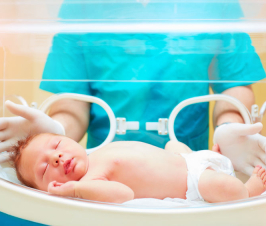Spontaneous, unplanned pregnancies happen all the time and while surprising, are the most wonderful things that can  happen to an expecting parent. In other occasions, potential parents like to plan and time when they would like to start growing their family and it’s at these times I’m often consulted for health and preparation advice to help ensure a healthy and seamless pregnancy. The asset to preparing for pregnancy is that parents can screen for potential roadblocks and prepare for a healthy pregnancy under the care of a trained healthcare provider. By preparing, you can prevent pregnancy-related health conditions, such as gestational diabetes, high blood pressure, reduce your risk for miscarriage and screen for other potential problems that may affect the health of your pregnancy.
happen to an expecting parent. In other occasions, potential parents like to plan and time when they would like to start growing their family and it’s at these times I’m often consulted for health and preparation advice to help ensure a healthy and seamless pregnancy. The asset to preparing for pregnancy is that parents can screen for potential roadblocks and prepare for a healthy pregnancy under the care of a trained healthcare provider. By preparing, you can prevent pregnancy-related health conditions, such as gestational diabetes, high blood pressure, reduce your risk for miscarriage and screen for other potential problems that may affect the health of your pregnancy.
If you are planning on starting to expand your family, I typically recommend starting a health regime 3 months priorto planned conception to give your body this time to correct any imbalances that can affect your fertility or quality of your pregnancy.
3 Considerations
1. Keep it clean
Keep it clean and healthy the for 3 months prior to pregnancy. I typically recommend a 3 month cleanse prior to conception. Cleansing is based on symptoms you may present with in office, but popular cleanses include Candida cleansing, elimination diet and liver-cleansing diets. This will help provide the body highly nutritive foods beneficial for pregnancy, removing foods that imbalance blood sugars and cause inflammation, and improving fluid intake and hydration. In many traditional medicine disciplines, it is thought the severity of nausea during pregnancy is related to the amount of toxicity in the body. Even in our western medicine culture, the notion that nausea and vomiting serves as a protective mechanism to protect the fetus from chemicals, and toxins in meat and other foods such as toxic vegetables, is becoming a widely accepted theory.1
2. Check your Thyroid
As outlined in my previous article, the thyroid provides a number of functions that help with fertility and maintaining a viable pregnancy. Thyroid conditions are the second most common glandular problem in women in childbearing age and it is estimated that 8-12% of pregnancy losses are due to thyroid problems.2 It is also important to note that 10% of infertility is due to the presence of thyroid antibodies, despite laboratory screening values suggesting that thyroid function is normal.2Outcomes of thyroid dysfunction during pregnancy can include miscarriage, preterm delivery, intrauterine growth retardation and decreased IQ of the child.3
I typically screen all my patients for potential thyroid disorders as part of my pregnancy prep to ensure that all levels are in perfect balance and provide the body with the necessary nutrients and/or natural medications in order to correct this prior to conception. Optimal levels for thyroid function include a serum TSH reading between 1-2 mIU/L.
3. Check your progesterone
Progesterone deficiency is a common problem in our modern society, however symptoms may not be so obvious as it generally presents as symptoms that have been considered by our modern medical society as “normal”. These symptoms include PMS symptoms such as premenstrual spotting, breast tenderness, low moods, anxiety and problems with sleep. Progesterone naturally declines as we age, with levels dropping starting at the age of 30 and onwards. Functional progesterone deficiency (not related to age) can result from chronic stress, long-term birth control use, increased estrogen levels through consumption of hormone-laden meats and exposure to exogenous estrogens found in plastics and chemicals. Low progesterone levels effect a woman’s fertility by preventing the uterine lining from being a favourable condition for implantation and growth of the embryo.4 Furthermore, low progesterone has been linked to recurrent miscarriage as it plays an important role in creating favourable conditions for implantation as well as keeping the immune system regulated so to prevent our immune system from mistaking the newly formed embryo as a foreign object needing to be removed.5 Pre-pregnancy screening of progesterone provides critical information of your fertility and screen 3 months prior to conception will give you and your healthcare provider optimal time to correct a deficiency. Optimal serum levels of progesterone for pre-conception is 40-50 nmol/L.
These are only a few, but important areas that are essential for maintaining a healthy and seamless pregnancy. Serum testing for thyroid and progesterone are easily done by your local laboratory, which can be ordered by your primary healthcare provider.
 Dr. Tanya Lee, N.D. received her Honours Bachelor of Science degree in Biochemistry and Biomedical Sciences from McMaster University, and was trained as a Naturopathic Doctor at the Canadian College of Naturopathic Medicine. Dr Lee practices full-time between two clinics located in Toronto and Milton Ontario and has been voted Milton’s favourite Naturopath in 2013 and 2014. Her primary care practice focuses on family medicine, treating a wide variety of conditions such as hormonal (endocrine) disorders, fertility, digestive problems, cardiovascular disease, diabetes, insomnia and fatigue. She has a special interest in the treatment of autoimmune diseases, paediatric and perinatal health. Tanya offers her clinical knowledge to a number of publications, including the Natural Path.
Dr. Tanya Lee, N.D. received her Honours Bachelor of Science degree in Biochemistry and Biomedical Sciences from McMaster University, and was trained as a Naturopathic Doctor at the Canadian College of Naturopathic Medicine. Dr Lee practices full-time between two clinics located in Toronto and Milton Ontario and has been voted Milton’s favourite Naturopath in 2013 and 2014. Her primary care practice focuses on family medicine, treating a wide variety of conditions such as hormonal (endocrine) disorders, fertility, digestive problems, cardiovascular disease, diabetes, insomnia and fatigue. She has a special interest in the treatment of autoimmune diseases, paediatric and perinatal health. Tanya offers her clinical knowledge to a number of publications, including the Natural Path.
References:
- Sherman P, Flaxman S Nausea and vomiting of pregnancy in an evolutionary perspective. Am J Obstet Gynecol. 2002 May;186(5 Suppl Understanding):S190-7.
- Medenica S et. al Thyroid dysfunction and thyroid autoimmunity in euthyroid women in achieving fertility. Eur Rev Med Pharmacol Sci. 2015;19(6):977-87.
- Medici M et. al Thyroid function in pregnancy: what is normal? Clin Chem. 2015 May;61(5):704-13
- Palomba S et. al. Progesterone administration for luteal phase deficiency in human reproduction: an old or new issue? J Ovarian Res. 2015 Nov 19;8:77
- Nardo LG, Sallam HN.

















